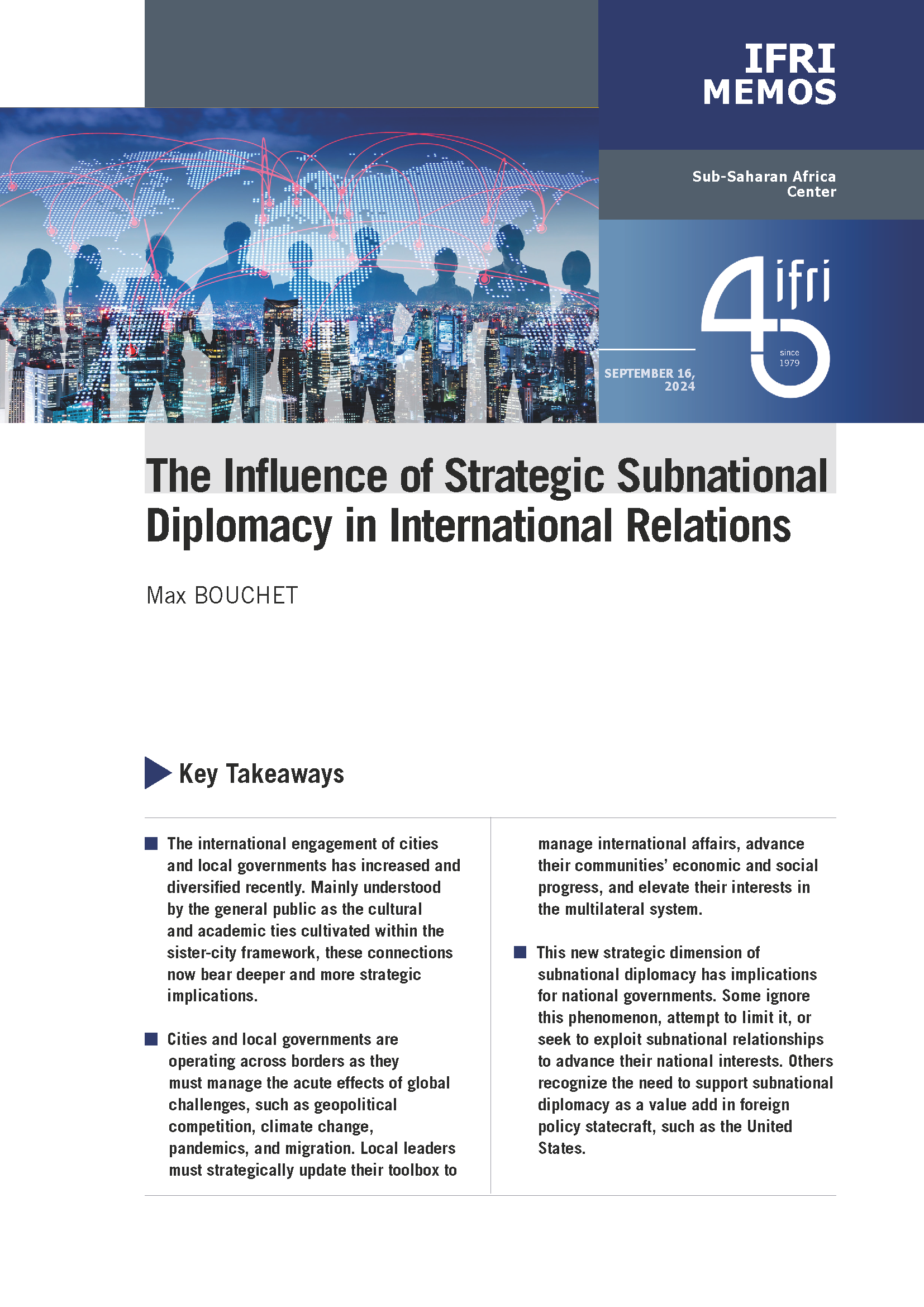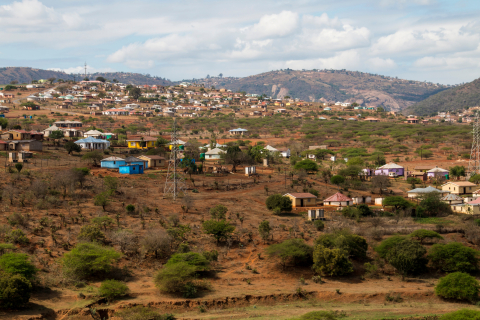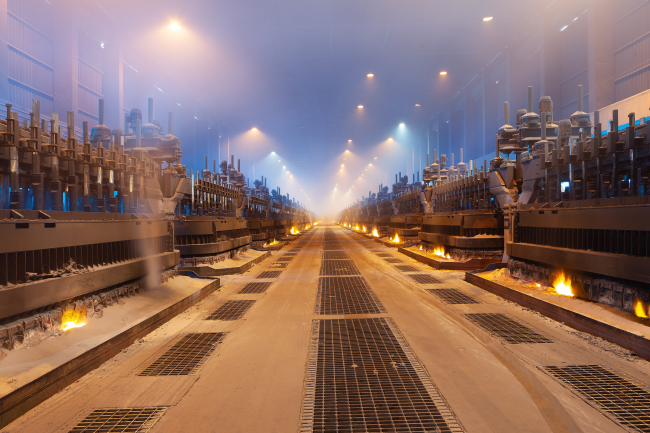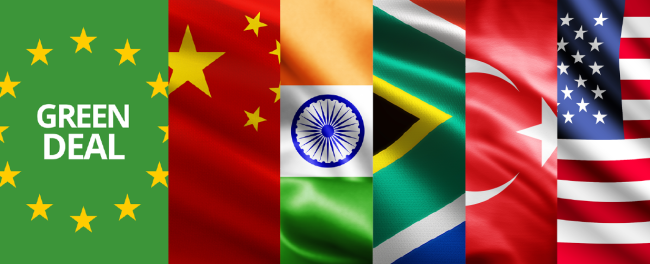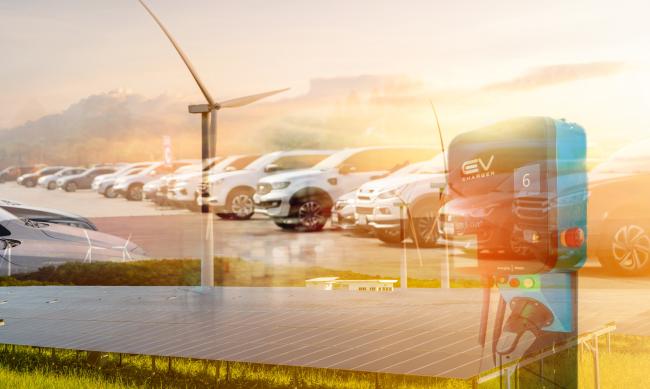Oil and gas resources of Middle East and North Africa: a curse or a blessing?
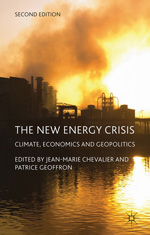
in The New Energy Crisis: Climate, Economics and Geopolitics, Ed. By J.M. Chevalier, foreword by C. Mandil, Palgrave Macmillan, 2nd Edition, 2013, Chapter 5.
Overview
Global warming reveals that the current evolution of the world consumption is on an unsustainable path. Humankind's insatiable appetite for energy has sparked a new crisis. In a world where climate change has become a proven reality, there lies a deep uncertainty about the physical, economic and social impacts of this phenomenon. The New Energy Crisis examines the impact of climate change issues into energy economics and geopolitics. Climate is a public resource that needs to be universally managed. The world economy has become global, but world geopolitics has not. Nations are still here, defending their wealth, their local interests and their ambitions.
This book follows a regional approach to improve our understanding of the dynamics of a multi-power world. Each region has its own specifications in terms of resource endowment, history and sensitivity to climate change. For millions of people economic growth is a priority, meaning increased energy consumption. The aggravation of global warming emphasises the cost of inaction at Copenhagen or Cancun, while the financial crisis engulfing so much of the world increases the energy demand of emerging countries, exacerbating economic and geopolitical tensions. This book offers a concise view of what is in store for our future, and proposes that the real challenge of the century is to reinforce world governance to overcome this crisis. Solidarity between nations, people, and generations is the key.
Contributors
Jean-Marie Chevalier is currently Professor of Economics at Paris-Dauphine University, France,at the Centre de Géopolitique de l`Energie et des Matières Premières (CGEMP). He is also a Senior Associate at Cambridge Energy Research Associates (IHS/CERA, Paris office). He has published numerous books and articles on energy economics and industrial organization. Recent publications include Les 100 mots de l`énergie (2010), Report on Oil Price Volatility (Report for Mrs Christine Lagarde, French Minister of Economy, Industry and Employment 2010), and Les marchés européens du gaz et de l`électricité: un défi pour l`Europe et pour la France (2008). Jean-Marie Chevalier graduated from the Institut d`Etudes Politiques de Paris and holds a PhD in economics from the University Pantheon-Sorbonne.
Patrice Geofronn is Professor of Economics at Paris-Dauphine University, France. Formerly international Vice-President of Paris-Dauphine, he is now Director of the CGEMP (Research Center in Energy and Raw Materials Economics) and President of the advisory council of the Climate Economics Chair. He regularly assists European energy corporations on strategic and regulatory issues and is economic expert for the International Center for Settlement of Investment Disputes (World Bank). He has been awarded a PhD in industrial organisation, and has recently published volumes on climate friendly energy systems and competition in network industries.Patrice Geoffron has been invited professor at the University of TodaI, Tokyo, and the University of Fudan, Shanghai. He is a member of the editorial board of the Journal of Management and Network Economics.
Table of Contents
Foreword; C.Mandil
The New Energy Crisis; J-M.Chevalier
The Carbon-Dependent Asian Dynamics; P.Geoffron & S.Rouhier
Russia and Central Asia: Between East and West; N.Campaner & A.Gubaidullin
Energy Poverty and Economic Development; J-M.Chevalier & N.Ouedraogo
Middle East and North Africa: Oil Curse or Blessing?; M.C.Aoun
The United States: Energy at a Turning Point?; S.Meritet & F.Salaun
A European Vision of our Energy Future; J.Horst Keppler
Energy Finance; D.Lautier & Y.Simon
Winning The Battle?; J-M.Chevalier

Also available in:
Regions and themes
Share
Related centers and programs
Discover our other research centers and programsFind out more
Discover all our analysesThe Aluminum Value Chain: A Key Component of Europe’s Strategic Autonomy and Carbon Neutrality
The United States of America (US), Canada and the European Union (EU) all now consider aluminum as strategic. This metal is indeed increasingly used, especially for the energy transition, be it for electric vehicles (EVs), electricity grids, wind turbines or solar panels.
The EU Green Deal External Impacts: Views from China, India, South Africa, Türkiye and the United States
Ahead of June 2024 European elections and against the backdrop of growing geopolitical and geoeconomic frictions, if not tensions, between the EU and some of its largest trade partners, not least based on the external impacts of the European Green Deal (EGD), Ifri chose to collect views and analyses from leading experts from China, India, South Africa, Türkiye and the United States of America (US) on how they assess bilateral relations in the field of energy and climate, and what issues and opportunities they envisage going forward.
Electric Vehicles: A Strong and Still Understated Performance
Electric vehicles (EVs) are better for the climate – even in worst-case scenarios. Across its life cycle, a typical European electric car produces less greenhouse gas (GHG) and air pollutants or noise than its petrol or diesel equivalent. Emissions are usually higher in the production phase, but these are more than offset over time by lower emissions in the use phase. According to the European Environment Agency’s report on electric vehicles, life cycle GHG emissions of EVs are about 17-30% lower than those of petrol and diesel cars.
How Can the Green Deal Adapt to a Brutal World?
The European Green Deal has not been planned for the current extraordinarily deteriorated internal and external environment. Russia’s war in Ukraine, higher interest rates, inflation, strained public finances, weakened value chains, and lack of crucial skills pose unprecedented challenges.


